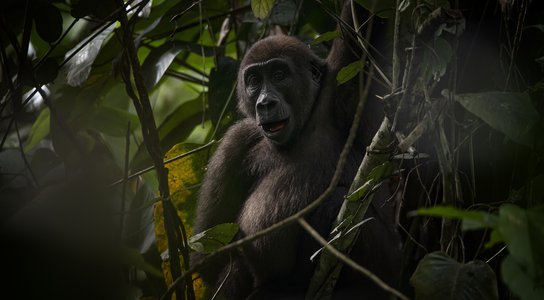In a bid to address our planet’s escalating climate crisis, the United Nations Climate Change Conference by the Conference of the Parties (COP) often takes centre stage each year, drawing world leaders, governments, climate experts, civil society and fossil fuel lobbyists alike.
But later this year, a lesser known Conference of the Parties (COP) is set to take place in Cali, Colombia, called the Convention on Biological Diversity – or CBD COP.
This conference will focus on the “silent crisis” of biodiversity loss, aiming to protect the natural world and halt the decimation of critical ecosystems – like the world’s forests – and the species they house.
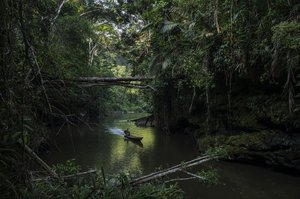
It also aims to ensure the sustainable and equitable sharing of the Earth's resources, particularly making sure that Indigenous peoples benefit from them.
Ambitions to protect nature are increasingly recognised as fundamental to meaningful climate action, with the triple planetary crises of climate change, pollution and biodiversity loss distinct but mutually reinforcing.
But what is biodiversity – and why is it important to us and to our planet?
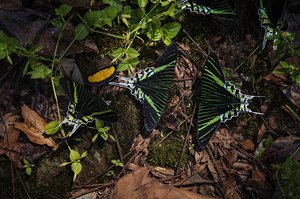
Why is biodiversity important – and why is it under threat?
Biodiversity refers to the variety of life on our planet, encompassing the diversity of species worldwide, the genetic variation within species themselves and the variety of ecosystems found on Earth.
It is this diversity of nature that underpins the natural processes humans depend on: the air we breathe, the security of our food, the richness of our species, our access to natural landscapes and access to clean water.
But according to the UN, one million species of plants and animals are now at risk of extinction, marking the largest loss of life since the dinosaurs.
Without this biodiversity, the wellbeing of all life on Earth – including our own – is at risk.
Throughout human history, societies have interacted with their environments in sustainable and regenerative ways. But excessive interventions can – and have – fundamentally destabilised ecosystems around the world.
The ongoing expansion of extractive industry projects – from waste management dumping to aviation mega-developments – is degrading the world’s environment at breakneck speeds – taking biodiversity with it. Much of this biodiversity loss can be linked to deforestation, primarily being driven by the world’s agribusiness.
Bankrolling biodiversity loss
Most of the world’s terrestrial biodiversity can be found in our planet’s forests. Covering almost a third of the global land surface, forests also absorb vast amounts of CO2, allowing them to act on balance as carbon sinks.
But worldwide, forests are under huge threat. For three decades, we’ve been tracking the industries and governments enabling widespread deforestation – including finding out who benefits from this forest and biodiversity loss.
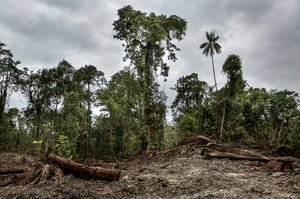
Our reporting has found that market giants like Vanguard, BlackRock, Barclays, BNP Paribas, HSBC, ING Group, Merrill (formerly Merrill Lynch) and Santander have all bankrolled agribusinesses engaging in deforestation, predominately for cattle ranching and growing soybeans.
Without legislation in place, these financial institutions can continue financing forest destruction – taking habitats and entire species with them.
To effectively tackle the biodiversity crisis, we must shut the funding off at its source. This means introducing mandatory “due diligence” checks for banks and financial institutions to prevent them from funding the companies behind the bulldozers.
The vital role of Indigenous peoples in biodiversity conservation
Indigenous communities worldwide play a vital role in protecting biodiversity, defending climate-critical forests, habitats and ecosystems.
Across 90 countries, they steward more than a third of the Earth’s protected land and preserve an estimated 80 percent of the world’s remaining biodiversity. Research shows that Indigenous-managed lands have lower deforestation rates and better conservation outcomes than protection zones that exclude Indigenous peoples.
The Kajang Indigenous community in Bulukumba Regency of South Sulawesi in Indonesia, for example, have developed a unique version of forest management system called "hutan adat" (customary forest).
This system designates specific areas of the forest for different uses, such as hunting, gathering and sacred sites. The Kajang also enforce strict rules on resource extraction.
Their efforts have not only protected the biodiversity of their ancestral lands but also served as a model for community-based conservation initiatives throughout Indonesia.
However, individuals behind initiatives like these worldwide face acute levels of danger in retaliation against their efforts, and often pay a heavy price for their role in protecting the world’s biodiversity.
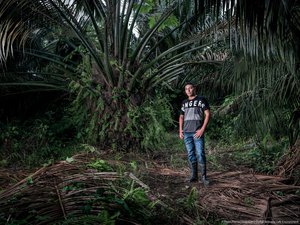
Around the world, those who speak out against the drivers of biodiversity loss – deforestation, pollution, land grabbing, mining and oil extraction – face alarming levels of violence and intimidation.
Last year, 177 land and environmental defenders worldwide were killed for their vital work protecting the planet – an average of one defender every other day – often while protecting some of the world’s most important ecosystems, with land conflicts being a leading driver in attacks.
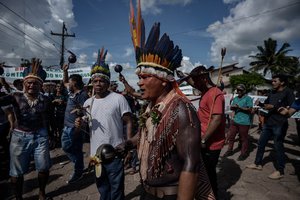
If we are to have meaningful climate action, this must include robust policies, stringent corporate accountability and safeguarding the communities risking their lives to protect biodiversity and climate-critical ecosystems.
Opportunity for change at Biodiversity COP16: Colombia
Amid this dual attack on biodiversity and those who seek to protect it, much hangs in the balance at Biodiversity COP16 in Colombia in October this year.
This is also true for the event’s host country. Overall, Colombia has the highest cumulative number of defender killings since we started collecting data in 2012, with 60 defenders killed in the country in 2022 alone.
These killings haven’t gone unnoticed. Last year, Colombian Minister of Environment and Sustainable Development, Susana Muhamad, publicly condemned these figures, urging the Constitutional Court to ratify the regional Escazú Agreement to protect defenders.
Muhamad announced that COP16’s theme would be "Peace with Nature", and stressed that the event will be "the people’s COP," recognising the need for urgent action for both defenders and biodiversity.
Within the Kunming-Montreal Global Biodiversity Framework itself – the core agreement for nature adopted at CBD COP in 2022 – Target 22 aims to ensure the full protection of environmental human rights defenders while guaranteeing access to justice and information.
The Colombian Government has a historic opportunity to make CBD COP16 a turning point for both biodiversity and those who protect it – and to live up to its promises to place defenders' voices at the centre of the agenda.
On top of this, CBD COP16 could provide defenders with recourse to justice through heightened recognition, security, legislative protection and corporate accountability for the industries behind reprisals.
It must also ensure that those profiting from the destruction of nature at the expense of those who depend on it are held accountable.
